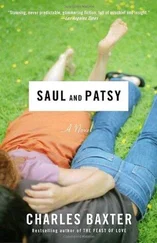“My God, Corinne,” Astrid blurts out. “What happened to you?”
“I died,” Corinne says. “And then I got on a bus and came here.”
—
Astrid tells me that she and I need to talk, and we descend into the mudroom to confer. I explain about the postcard, and Astrid nods randomly. She’s angry, of course, that I said that Corinne was, or is, Jeremy’s mother. She’s even angrier that she’s here and that I had said nothing about her arrival, but given the strangeness of events, I am temporarily forgiven. We determine that for now Corinne will sleep in the basement rec room’s foldout bed. She may find the basement somewhat damp, given her allergic inclinations, but that’s life. The dehumidifier does its level best. Then Astrid says to me, “Don’t ever do this again,” as if Corinne’s appearance here is my idea.
“I didn’t do it this time,” I reply.
When we return to the kitchen, my mother has descended from her upstairs room and is talking to Corinne as if Corinne had only been away for a few days. My mother is immune to surprise. Those two are conversing quite lucidly on various topics: the weather, and then recipes they once shared, and treatments for the common cold (zinc lozenges). Astrid returns to the salmon. Will there be enough for everyone? Yes, if the portions are small. I instruct Lucy to set the table, which she does, happy to have a task to keep her occupied. I remind her to set an extra place for Corinne. I pick up Corinne’s two brown paper bags and take them downstairs, and I fold out the bed and make it up with sheets and blankets that we keep down there in an old dresser near the dehumidifier.
But what I am thinking about is Jeremy, and so I go back upstairs, past the kitchen, into the living room, and then out into the front yard, and I open my cell phone, and I call him, and when he answers, I say, “Get right home.”
He says, “I’m almost there. What’s up?”
“Something has happened,” is all I can say, “and it’s about you. I’ll explain when you get home.”
—
Most people don’t realize that in an automobile repair shop, you see a wide variety of human behavior in reaction to bad news. Some people practice stoicism. But most of the time, if you tell someone that his car’s transmission is shot and will require thousands of dollars of work, you see anger directed against the automobile . Or against fate. Or against God for having had a hand in bum transmissions. Or against me, for serving as messenger. The anger is pointless. Life does us no favors. We have to manage with what we have. I’m not complaining. I’ve had a good life so far. I played tackle in high school football and chased girls and always loved cars. I raised some hell, mostly petty vandalism and a bit of promiscuity and public drunkenness, before I settled down with Corinne. I did my share of drugs. So what? I was crazy the way young men often are. I’m proud to say I was never hauled in before the authorities when I got really wild. My friends watched out for me, and I therefore survived my youth. Because of that, I give thanks for my health and my family. I got my associate’s degree. Like I say, I’ve got no complaints.
But Corinne broke my heart when she left me, and I was ready to be angry with her for years after that. That’s a long time ago. Day by day the anger seeped out of me in a slow trickle until it was gone. I have to let her remain here if she wants to. She’s wreckage. It’s as simple as that. We have these obligations to our human ruins. What happened to her could’ve happened to me or to anybody.
Jeremy, however, possesses neither wisdom nor adult perspective, and my heart is thumping away like a maddened rabbit in a cage as I wait for him to get home. At last I see him coming down the block on his skateboard while he talks on his cell phone.
When I get to the kitchen, he’s standing there near the stove, and all the women are looking at him but no one is saying anything. Again, the silence. What’s the matter with them? They talk all the time when nothing is on the line, but if something serious happens, they clam up.
“What’s going on?” he asks. He looks over at Corinne and nods his head in her direction. “Who’s this?” Corinne is standing over there, propped up against the refrigerator.
Again a silence persists. No one will step up to the plate. So I say, “This is Corinne. Corinne, this is Jeremy.”
The thing is, they look so similar that you’d never mistake them for anything except a mother and her son. Gazing at Corinne, Jeremy suddenly notices that resemblance, and he flinches.
“Hi,” Corinne says shyly. She sweeps the bangs away from her forehead and gives him a halfhearted smile. She can’t hug him. She can’t kiss him. Not yet. All she can do is stand there.
Jeremy looks at her, then at Astrid, then at Dolores, and finally at Lucy. That’s when Lucy pipes up. “That’s your mom,” she says as if this were the Ripley’s Believe It or Not! museum.
Jeremy points at Astrid. “ That’s my mom.”
“Well, we both are, sort of,” Corinne says. “Don’t you think?” She looks like a high school girl at a dance hoping that some eligible fellow will come into view to retrieve her.
“You’re kidding,” Jeremy says.
“Corinne is going to stay with us for a while until she gets back on her feet,” I say.
That’s when he turns to me, blushing from anger. “On her feet?” He starts to leave the room, but then Corinne points at his ear.
“You have an earring,” she says. Jeremy nods, stumped by the obvious. And then she says, “I’ve never gotten used to them on men. Not even on grown men. I know I should, the way everyone else does, but I can’t. I just can’t.” She seems to be trying to break up the silences with plain speech. “No one told me how boy-pretty you’d become. I’m so old-fashioned. With that earring you look a little queer.”
“Corinne!” my mother says, leaning against the kitchen counter for stability. “You can’t say that. No one says that.”
“Yes,” she says shamefacedly. “No one does say anything like what I say. It’s been my downfall.”
“It’s all right,” Jeremy says. “Because I am queer. I’m, like, a total fag. And now this queer is going upstairs. Goodbye.”
Off he goes, clumping noisily away from us. I’ll let him sit up there for a minute before I go up to talk to him.
“Anyhow,” Lucy says, “the word is ‘gay.’ You can’t say ‘queer’ unless you are queer.”
“They’re the same, aren’t they? Those words?” Corinne asks, trying to smile. I truly wish she would stop talking.
“Well, what’s really interesting,” Astrid says, suddenly turning around and facing us, “is why Jeremy would say that he’s gay when all the evidence is to the contrary. And there’s been quite a bit of evidence already, Corinne, though you wouldn’t know that.”
“No, I wouldn’t know,” Corinne responds.
“Tell her about Alissa,” Lucy says to her mother. “Little Miss Princess? The pink stockings? The locket? The bunny factory?”
“No, we’re not going into that,” Astrid says.
“At least he didn’t get her pregnant,” I say helpfully, because he didn’t. They used condoms.
“But he could of,” Lucy says proudly. “If he had tried.”
“This is so the wrong topic,” Astrid says. “Corinne, you must be very tired. We’re all surprised to see you, as no doubt you know, and I suppose you’d like a glass of water. Are you hungry? Thirsty? The salmon will be ready soon, and we’ll all sit down to eat. I wish you had given us a bit of notice. And we’ll have to catch up on all your news!” Astrid tries a smile.
Читать дальше












